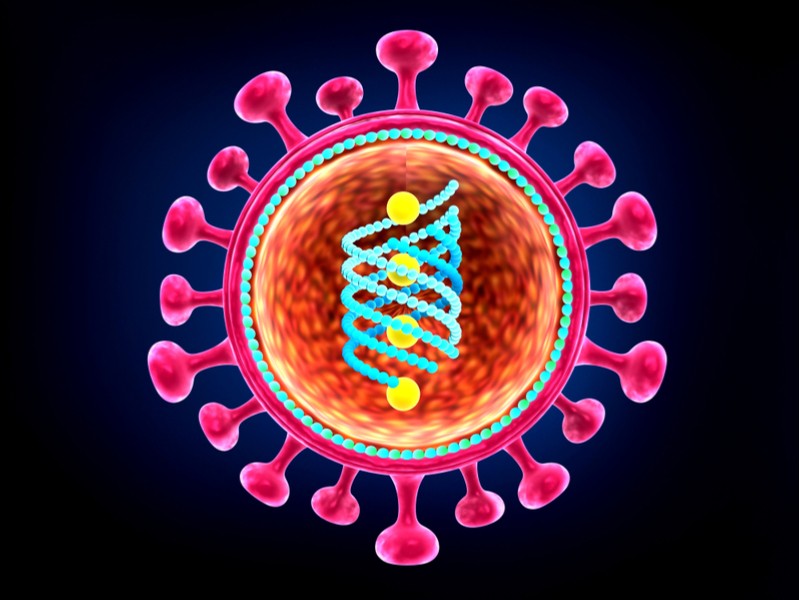Newsletter Signup - Under Article / In Page
"*" indicates required fields
The recent approvals of long-acting HIV injections promise to lighten the load of HIV sufferers around the world. However, a vital UN deadline for improving global HIV healthcare has slipped away.
At the end of January, ViiV Healthcare’s Cabenuva became the first long-acting HIV treatment to be approved by the FDA. This decision, in addition to approvals of the same drug in Canada and the EU last year, is widely seen as one of the most promising developments in the HIV field over the past year.
ViiV Healthcare’s treatment consists of two antiretroviral drugs called cabotegravir and rilpirivine. Rilpirivine is traditionally taken daily as a pill to stop the HIV virus from replicating itself. The GlaxoSmithKline-owned company has repackaged it into an injectable formulation that makes it last longer in the body. Together with injectable cabotegravir, the formulation keeps the virus suppressed.
“This new regimen, approved over the last year in the US, Europe, and Canada, challenges the traditional treatment paradigm of having to take daily oral pills and provides a new, long-acting therapy that can reduce treatment dosing days from 365 to 12 (once-monthly) or even six (once every-two-months) per year,” said ViiV Healthcare’s Head of Research and Development, Kimberly Smith.
Unfortunately, this achievement came too late to help global HIV healthcare meet its targets last year.
By the end of 2020, the United Nations had called for the vast majority of people living with HIV to have access to testing and sustained antiretroviral treatment, and to live with undetectable levels of the virus in their bodies. This target was a key stepping stone towards ending the HIV pandemic by 2030. Yet it has been spectacularly missed, with data suggesting that HIV testing and treatment in many countries was disrupted by the Covid-19 pandemic.
With healthcare systems around the world under unprecedented pressure due to Covid-19, donor funding to low- and middle-income countries is being cut. Predictions suggest there may be up to 293,000 new HIV infections and 148,000 AIDS-related deaths between 2020 and 2022 alone.
“Research work on HIV has been paused in many countries to focus staff and resources on Covid-19, so for the next 12 months, there may still be a negative impact on the timeframe of ongoing studies and research,” said Imperial College London Professor in HIV Medicine, Sarah Fidler.
Combination antiretroviral treatment has changed HIV from a death sentence into a manageable condition. Yet AIDS remains a chronic disease that often needs daily medication, with no vaccine prevention currently available.
The virus is particularly tricky to tackle due to the genetic diversity of different strains and its action in targeting the very immune cells that traditionally fight viral infections. Furthermore, it can hide from detection by taking refuge within cells as ‘latent reservoirs,’ leading the virus to rebound within weeks of being eliminated from the bloodstream.
Although more than 30 antiretroviral drugs are currently in use, drug resistance is increasing and new approaches are clearly needed as the number of people with HIV globally tops 39 million.
ViiV Healthcare is one of many biotech companies rising to these challenges, investigating new HIV treatment and prevention approaches such as novel combination long-acting agents, broadly neutralizing antibodies, natural derivatives, and capsid inhibitors.
In addition to the recently approved Cabenuva, ViiV is developing a long-acting injectable form of cabotegravir alone for HIV prevention, which has been shown superior to daily pills in phase III. The company plans to submit a drug approval application this year.

ViiV Healthcare is also working with the US National Institutes of Health to investigate the use of broadly neutralizing antibodies against HIV. These treatments can block the entry of different HIV strains into cells and possibly activate the immune system to destroy those that are infected.
Two weeks ago, however, a different project developing these antibody drugs — known as the Antibody Mediated Prevention (AMP) studies — found no strong evidence that the drugs could prevent HIV overall.
Other biotechs are exploring different avenues, with the aim of achieving better results. The German firm Bicoll is in the process of developing an entirely new class of HIV inhibitors from fully synthetic derivatives of the natural polyketide aurethin, which is found in Streptomyces bacteria.
Although still in the early stages of development, these compounds — known by the acronym MAGIC (multiple antiviral gamma-pyrone inspired compounds) — have been found to be active against HIV-1 and HIV-2, including strains that are resistant to several HIV drugs.
“Natural products are a great source for inspiration,” said Maria Lamottke, Chair of Bicoll’s Board of Directors. “With Bicoll’s expertise in medicinal chemistry as well as in natural products, we could help [in] bringing it from the idea to the state of a preclinical, potential pharmaceutical drug.”
In November, Gilead Sciences announced positive results from a phase II/III trial of a treatment for people infected with multidrug-resistant HIV, used in combination with other retroviral agents. The drug interrupts the activity of the HIV capsid, a protein shell that surrounds and protects the genetic material of the virus as well as essential enzymes. This drug could potentially become the first in its class to be approved.
While the Covid-19 pandemic has disrupted many efforts to tackle HIV, there is also the hope that it could assist the hunt for the elusive ‘silver bullet’ vaccine.
“The resources and energy that have led to the extraordinary scientific advances in the development of a vaccine to protect against Covid-19 have led to significant important lessons that will be very relevant to the HIV vaccine and antibody development field,” explained Fidler.
“Many of the scientists and clinicians that usually work in HIV research have altered their focus to Covid-19, so the experiences and expertise they have gained will be well placed for forwarding the field of HIV vaccine development in the future.”
One of the most advanced HIV vaccine programs is run by Johnson & Johnson, the Bill and Melinda Gates Foundation, and the NIH. The partners have recently completed a phase IIb trial of their candidate, with results expected to be reported in 2021.
Moderna, which was one of the frontrunners in using messenger mRNA (mRNA) to produce Covid-19 vaccines, has just announced two new phase I trials exploring an mRNA vaccine for HIV that are set to begin in 2021.
“The phenomenal Covid-19 vaccine progress will undoubtedly yield benefit for the development of other vaccines, in terms of new technologies and capacity to develop vaccines, but an HIV vaccine remains hugely challenging, not least because, unlike most infections for which there is a vaccine, a cure remains vanishingly rare,” said Laura Waters, Chair of the British HIV Association.
“The next developments in HIV care will be focused primarily on novel drugs, including injectable treatments given every month that will remove the need to take pills every day and pave the way to less frequent injections and, eventually, implants.”
Cover image from Elena Resko. Body image from Shutterstock






